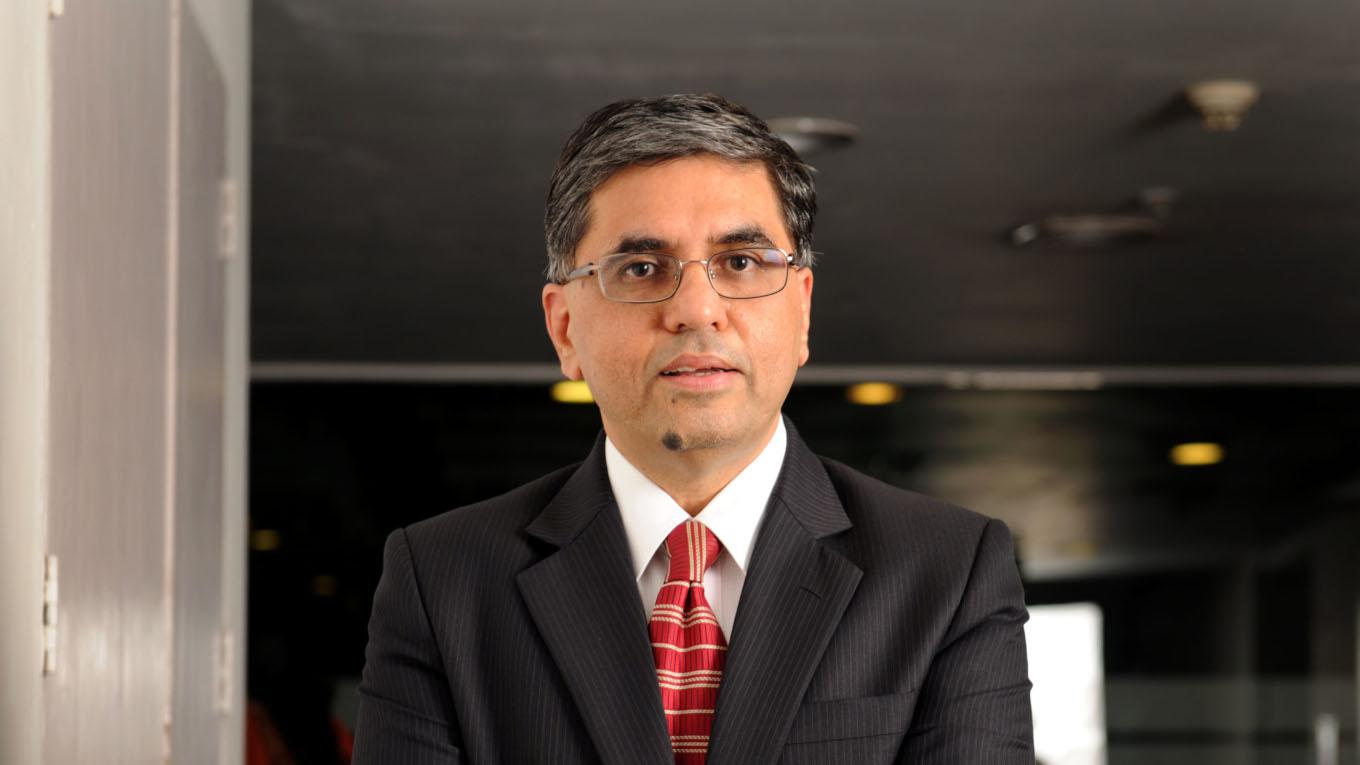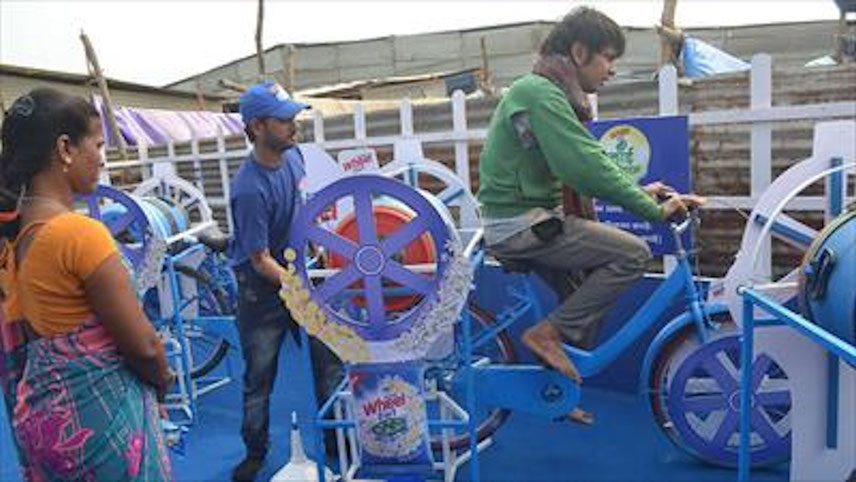-

Photo Credit: Sanjay Borade
Sanjiv Mehta, chairman & managing director, HUL, talks about the company’s business strategies Q At Hindustan Unilever, how do you view inclusive business strategies? A Our purpose at Unilever is to make sustainable living commonplace. As a company, we have three strong beliefs: Brands with Purpose Grow, Companies with Purpose Last and People with Purpose Thrive. Inclusive business for us means looking after the interests of all our stakeholders, focussing on long-term value creation and while growing our business, reducing our environment footprint and increasing societal impact. We believe in the fundamental premise that, if we look after the interests of our stakeholders – consumers, customers, employees, suppliers, society and the planet – we will be able to create shareholder value. We are committed to supporting stakeholders across the value chain. We are doing so with employees in our offices and factories, with those working in the farms where our raw materials are harvested, with the retailers selling our products, and with those reached by our advertising, engagement platforms and partnerships. Through our purpose-led brands we are working not only to meet the unmet needs of consumers but to promote equality, challenge stereotypes and help build a more diverse and inclusive world. Q How has HUL leveraged its brand power for this purpose? A We recognise that the biggest impact we can have on the society is through our purpose driven brands. Let me illustrate this through a few examples. ‘Dove’ is on a mission to ensure young girls have a positive attitude towards body image. The brand supports young girls by helping them raise their self-esteem and realise their full potential. ‘Surf Excel’ believes that dirt and experiences are a gateway to unleashing human potential. The brand encourages mothers through its ‘Dirt is Good’ campaign to push their children to learn, while Surf Excel takes care of the dirt and tough stains. ‘Brooke Bond Red Label’ is about coming together and bridging differences over a great cup of tea. It stands for making the world a more welcoming place by breaking barriers of caste, creed, religion and social stereotypes. On working with small-holder farmers – Our work with small-holder farmers as part of our Sustainable Sourcing agenda focusses on training them on good agricultural practices such as drip irrigation, nutrient management and pest and disease management. Thousands of small-holder gherkin farmers in southern India and farmers growing tomatoes for HUL have benefitted from these training initiatives. On working with distributors and suppliers – We constantly seek to build a long-term relationship with our partners who distribute our products. We help them with technology and management practices. We have been a pioneer in the area of big data and analytics as a tool to drive their growth and in using intelligent analytics at the back end, to enable them to deliver better on-shelf availability in stores. On developing communities – ‘Prabhat’ is our community development initiative that aims to build sustainable and inclusive communities around HUL’s manufacturing locations which are dotted across India. In the last few years, through focussed efforts in the areas of water conservation, skills for livelihood, health and hygiene we have touched almost three million lives in over 30 locations and have had over 5,000 HUL employee volunteers engage with these communities. On Hindustan Unilever Foundation – HUF is our not-for-profit company that acts as a vehicle to anchor water management-related community development and sustainability initiatives of Hindustan Unilever Limited. By the end of 2018, we have cumulatively and collectively created more than 700 billion litres of water conservation potential through improved supply and demand management of water across 4,300 villages. On Project Shakti – It aims to provide livelihood enhancing opportunities to women micro-entrepreneurs in rural India. Shakti entrepreneurs (SEs) are given training for familiarisation with HUL’s products and basic tenets of distribution management. HUL has a team of Rural Sales Promoters who coach and help SEs in managing their business. Today, Project Shakti has over one lakh micro-entrepreneurs across 18 states. On Suvidha Community Hygiene Centre – It is a first-of-its-kind urban water, hygiene and sanitation centre in one of Mumbai’s largest slums. The community centre provides drinking water, sanitation, hand washing, shower facilities and laundry services at an affordable cost. This has been described as an oasis in the midst of squalor.
-

An innovative way to wash clothes by attaching a drum to a stationary bicycle. Source: HUL
Q Are innovation, ideation and implementing processes alive and well in this space? What has been the leadership’s role in engaging the organisational talent in the process of ideation and implementation of inclusive business strategies?
A Innovation and ideation has always been the hallmark of our operations – not just in creating and marketing brands but in nearly every function. On brands, our teams go beyond the mere functionality of products and in fact, reflect on two important questions every time they work on innovations – how we reduce environmental impact and how we increase the societal impact. Our ‘Winning in Many India’s’ framework and ‘Connected 4 Growth’ initiatives have resulted in the devolvement of significant authority to our market clusters and the mini boards who run our categories. Experimentation has now become a way of life in HUL and this has unleashed huge amount of energy and creativity across the organisation. Here are a few examples from the recently concluded Kumbh Mela where we implemented several initiatives that were lauded for the innovative spirit.
On ‘Swasthya Chetna Thalis’ – These food plates, served to visitors, were etched with the simple message from Lifebuoy – kripaya pehle sabun se haath dhoyein (Please wash your hands with soap first). This message reached and had an impact on nearly 20 crore people.
On Wheel Wash-o-Cycle washing machine – Our detergent brand Wheel provided an innovative way to wash clothes by attaching a drum to a stationary bicycle. Simply speaking, it’s a drum attached to a stationary bicycle. When a person pedals, the drum rotates, serving as a washing machine for soiled clothes. The device needs no electricity, saves water and can be used by anyone and everyone.
On swachhata ki sawari – As part of swachhata ki sawari, nets were attached to the boats ferrying passengers on the river. The nets were designed to collect floating garbage during the journey to and from the Sangam. Once the boat reached the shore, a team of cleaners removed the trash from the nets and transported it to the designated garbage area.
On Tea for Trash – Brooke Bond Red Label installed innovative tea vending machines across the Kumbh Mela which doubled up as dustbins with the help of a built-in sensor. Every time a pilgrim disposed-off garbage, the sensor got activated and dispensed a hot cup of tea. The aim was to inculcate the habit of safe disposal of waste among people.
Q In your opinion, what are the critical success factors for inclusive business strategies?
A Inclusive business is integral to our purpose of making sustainable living commonplace. The success of inclusive business strategies depends on several factors – philosophy of the organisation, removal of barriers, unlocking the potential of a large number of people through empowerment and capability building, sharing of knowledge, building partnerships, creating opportunities for the deprived sections of the society and implementing last mile initiatives for those who need them the most. ‘Inclusiveness’ cannot be an addendum; it needs to be an integral part of the business.
Q Do such strategies create financial value for companies or are they plain brand enhancement initiatives?
A I believe companies with inclusive business strategies are more innovative, its employees have a higher level of motivation, and they create value for the society and for themselves. Take HUL as an example – we are one of the most valuable companies in the country with a market capitalisation of over $50 billion. We are a company with purpose and values; our sustainable business model is value accretive to the business. We strongly believe that inclusive companies perform better.
Q What is the role of organisational leadership in implementing inclusive business strategies since they are high-risk initiatives?
A Leadership plays a very important role in implementing inclusive business strategies. First, you must have a strong belief that these are the right things to do. Second, you need to create an environment where these strategies are implemented keeping a long-term perspective and not as a flavour of the day. Importantly, leadership should help in finding likeminded partners to address the challenges encountered while driving inclusive strategies.
At HUL, diversity and inclusion in our workforce is also an important aspect of our inclusive business strategies. We track gender representation across levels and functions. There is a leadership council that reviews progress on this front regularly and is committed towards ensuring advancement of women. We are delighted that today 40 per cent of management positions are held by women. We are determined to achieving gender balance in the next few years. We are a company with purpose and values; our sustainable business model is value accretive to the business.
Biogas
BioEnergy will showcase its innovative biogas technology in India
Mobility
Ather aims to produce 20,000 units every month, soon
Green Hydrogen
German Development Agency, GIZ is working on a roadmap for a green hydrogen cluster in Kochi
Renewable Energy
AGEL set to play a big role in India’s carbon neutrality target



















